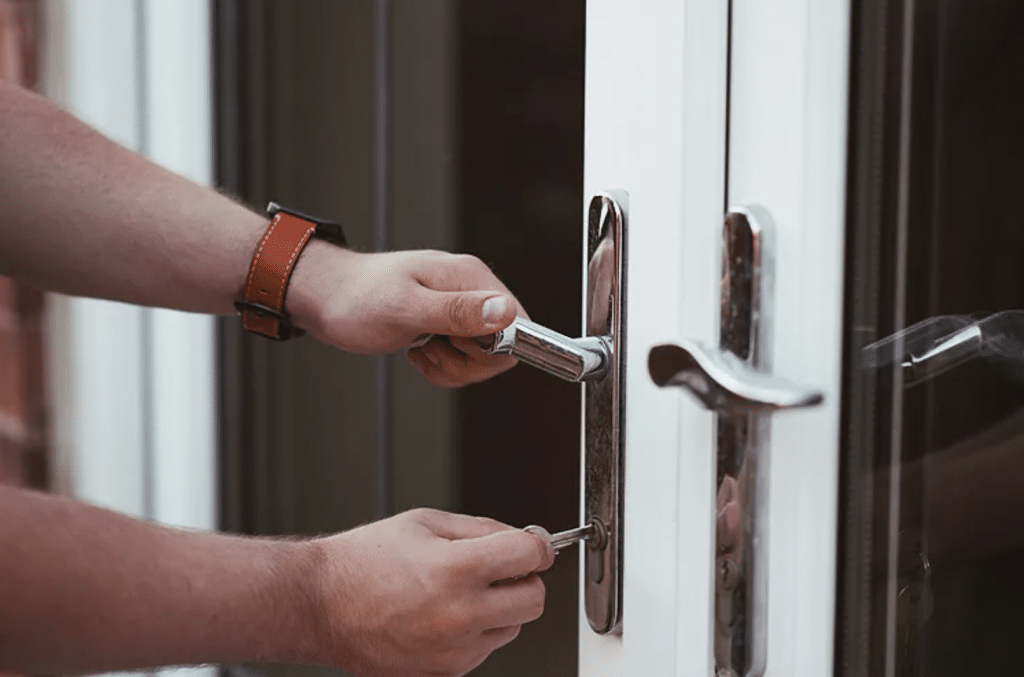Locks are an essential part of our everyday security, yet they are often taken for granted until they fail. Regular maintenance can significantly extend the life of your locks and ensure they function smoothly. By following some simple DIY tips, you can keep your locks in top shape and avoid the inconvenience and cost of unexpected lock failures. Here are some practical steps to maintain your locks effectively.
1. Regular Cleaning
Dirt and grime can accumulate inside your locks over time, leading to poor performance or even complete failure. Regular cleaning can help keep your locks functioning smoothly.
How to Clean Your Locks:
- Wipe the exterior of the lock with a soft cloth dampened with a mild soap and water solution.
- Use a can of compressed air to blow out dust and debris from the keyway and internal components.
- Avoid using oil-based lubricants as they can attract more dirt and dust.
For professional cleaning and maintenance, consider reaching out to Ben’s Locksmith Services for expert assistance.
2. Proper Lubrication
Lubrication is key to maintaining the smooth operation of your locks. However, using the wrong type of lubricant can do more harm than good.
Recommended Lubricants:
- Graphite powder or a silicone-based lubricant is ideal for locks.
- Avoid oil-based lubricants like WD-40, which can attract dirt and cause buildup.
How to Lubricate Your Locks:
- Insert the lubricant nozzle into the keyway and apply a small amount.
- Insert the key into the lock and turn it several times to distribute the lubricant evenly.
3. Tighten Loose Screws
Over time, the screws holding your locks in place can become loose, affecting the lock’s functionality and security.
Steps to Tighten Screws:
- Check all screws on the lock body, strike plate, and door hinges.
- Use a screwdriver to tighten any loose screws securely.
- Ensure the lock and strike plate are properly aligned.
4. Inspect and Replace Worn Parts
Locks are made up of several moving parts that can wear out over time. Regular inspection can help identify worn or damaged components that need replacement.
Parts to Inspect:
- Check the condition of your keys. Bent or worn keys can damage the lock mechanism.
- Inspect the lock cylinder, latch, and deadbolt for signs of wear.
- Ensure the strike plate is not misaligned or damaged.
For replacement parts and residential locksmith services contact our experienced team to ensure your locks are in optimal condition.
5. Ensure Proper Alignment
Misaligned locks can cause the latch or deadbolt to bind, making it difficult to lock or unlock your door. Proper alignment is essential for smooth operation.
How to Check Alignment:
- Close the door and observe if the latch or deadbolt aligns correctly with the strike plate.
- If not, adjust the strike plate by loosening the screws and repositioning it.
- Tighten the screws once the alignment is corrected.
6. Protect Against Weather
Locks exposed to the elements can suffer from rust and corrosion, which can impair their function.
Weatherproofing Tips:
- Apply a weather-resistant lubricant to protect against rust.
- Use a lock cover to shield the lock from rain, snow, and direct sunlight.
- Regularly inspect outdoor locks for signs of rust and address any issues promptly.
7. Use High-Quality Keys
Using keys that are in good condition is crucial for the longevity of your locks. Poorly cut or damaged keys can cause significant wear on the lock mechanism.
Key Maintenance Tips:
- Replace bent or worn keys to prevent damage to the lock.
- Ensure new keys are accurately cut by using the original key as a template.
- Keep keys clean and free from dirt and grime.
8. Regularly Test Your Locks
Regular testing can help you catch problems early before they become serious issues.
Testing Your Locks:
- Lock and unlock each door regularly to ensure smooth operation.
- Pay attention to any unusual resistance or difficulty when turning the key.
- Investigate and address any issues promptly.
When to Call a Professional
While DIY maintenance can handle many common issues, some problems require professional intervention. If you encounter the following, it’s best to consult with Ben’s Locksmith Services:
- Persistent difficulty in operating the lock despite cleaning and lubrication.
- Significant wear or damage to the lock or key.
- A loose or insecure lock mechanism.
- Signs of tampering or compromise.
